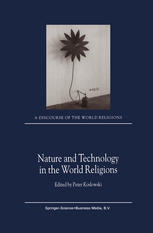

Most ebook files are in PDF format, so you can easily read them using various software such as Foxit Reader or directly on the Google Chrome browser.
Some ebook files are released by publishers in other formats such as .awz, .mobi, .epub, .fb2, etc. You may need to install specific software to read these formats on mobile/PC, such as Calibre.
Please read the tutorial at this link: https://ebookbell.com/faq
We offer FREE conversion to the popular formats you request; however, this may take some time. Therefore, right after payment, please email us, and we will try to provide the service as quickly as possible.
For some exceptional file formats or broken links (if any), please refrain from opening any disputes. Instead, email us first, and we will try to assist within a maximum of 6 hours.
EbookBell Team

4.1
40 reviewsTechnology and the control of nature have arisen from the endeavor to reduce the neediness of human life. Since this reduction is also the goal of religions, there is a necessary proximity between religion and technology. The relationship of humans to nature and technology is an object of religious doctrine and ethics in all of the world's religions. The interpretations and the norms of the treatment of nature in economy and technology, but also the veneration of nature in nature-mysticism and its elevation in cult and sacrament, are forms of expression of the relationship to nature in religions. The development of the modern control of nature through technology appears to be connected to the biblical commission to rule over nature. Buddhism and Hinduism, however, also interpret technology and human control of nature.
Technological power raises the question of how the normativeness of the created order intended by religion's concept of creation relates to the human freedom to reshape creation. What answers do religions give to the question of the humane form of technology and the limits to technological power and human control of nature?
Leading scholars of Judaism, Christianity, Islam, Hinduism, and Buddhism have created with this volume a first-hand source of information which enables the reader to gain a better understanding of these five world religions and their teachings on nature and technology.